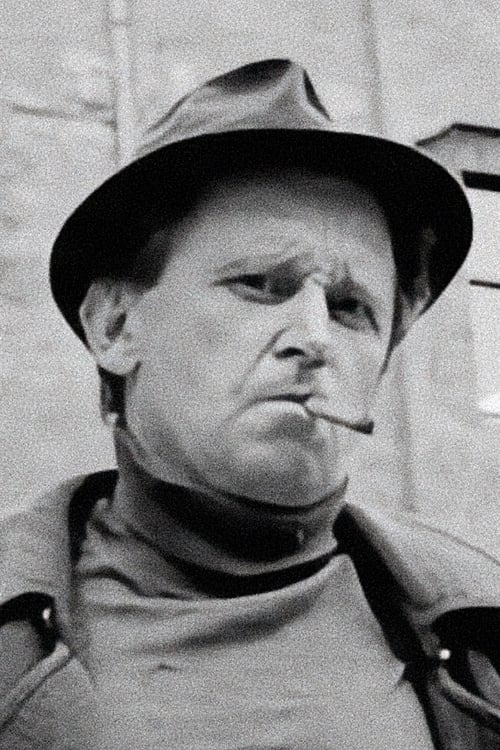
Self (archive footage)
The panorama of human affairs encounters the “man with a movie camera”. His playground has no boundaries, his curiosity no limits. Characters, situations and places pitch camp in the life of a humanity that is at once the viewer and the thing viewed. But what are the last days of this humanity? Have they already passed? Are they now or still to come?

Director
"The word 'revolution' to us Frenchmen is not a vague term. We know that Revolution is a rupture, that Revolution is an Absolute. There is no such thing as a moderate revolution, there is no such thing as a planned revolution—as one speaks of a planned economy. The revolution we are announcing will overturn the entire existing order or it will not take place at all..."

Writer
More than a land, it is from the lake that this son comes. Raised by a father fisherman, he learned his noises and currents, maybe also its hardness at the same time as that of adults. Lake is also a border, but in the water his drawing is lost: in the fishery, "profession of free men", Savoyards and Vaudois find themselves in confreres, and if out loud we only talk about nets and fish, in silence we sometimes enter the Resistance. During the war, Switzerland was sent to refugees, without always understanding what is happening, or why they have this look. After the war, the son will contribute to another history: elected municipal, he participates in the emergence, in Lausanne or to Thonon, of a new left. According to the novel Gens du Lac de Janine Massard, published by Bernard Campiche

Himself
Short film commissioned by the Cinemathèque Suisse to celebrate Jean-Marie Straub’s 85th birthday. Directed by Jean-Claude Rousseau.

Himself
Short film commissioned by the Cinemathèque Suisse to celebrate Jean-Marie Straub's 85th birthday.

Director
More than a land, it is from the lake that this son comes. Raised by a father fisherman, he learned his noises and currents, maybe also its hardness at the same time as that of adults. Lake is also a border, but in the water his drawing is lost: in the fishery, "profession of free men", Savoyards and Vaudois find themselves in confreres, and if out loud we only talk about nets and fish, in silence we sometimes enter the Resistance. During the war, Switzerland was sent to refugees, without always understanding what is happening, or why they have this look. After the war, the son will contribute to another history: elected municipal, he participates in the emergence, in Lausanne or to Thonon, of a new left. According to the novel Gens du Lac de Janine Massard, published by Bernard Campiche

Self
An initiative from Pompidou Center, filmed by Jean Marie Straub.

Director
An initiative from Pompidou Center, filmed by Jean Marie Straub.

Director
A film in three parts: An aquarium, a man sitting at a table reading various text passages, and a sequence from Jean Renoir’s film LA MARSEILLAISE. This is all from a film by Jean-Marie Straub – about fate, the soul and the cosmos, about the evident nature in which man lives, just like in the aquarium surrounding him. And finally, there’s the nation as a symbol for the community of free people. A Straub film represents a gift that isn’t based on exchange, but rather the opposite of communication. And what could be more beautiful and liberating in life?

"Jean-Marie Straub and Danièle Huillet" is the overlay of two Cinematons by Gérard Courant with Jean-Marie Straub and Danièle Huillet: "Jean-Marie Straub, Cinématon number 342" and "Danièle Huillet, Cinematon number 343," filmed on May 27, 1984.
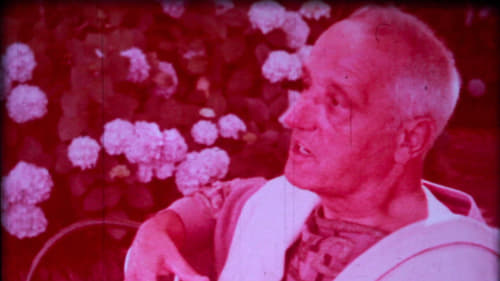
Director
Fragment of last reel from "History Lessons" presented in an installation as a special event for the Venice Biennale Arte.

Director
Montage of one scene from Othon and set photos, made for a celebration of Renato Berta’s birthday at Stadtkino Basel on April 1, 2015.
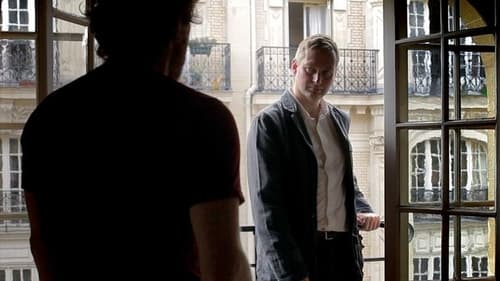
Director
In a single static shot a man is threatened with death at another's gunpoint.

Jean-Marie Straub pushes this musicality of blocks to a paroxysmal extreme, mixing blocks of time (40 years separate the various extracts that are going to be used, and what is to be filmed), blocks of text (Malraux, Fortini, Vittorini, Hölderlin) and blocks of language (French, Italian, German), and from this ruckus emerges the history of the world, yes, History with a capital H, and from the same movement, the political hope of its being overtaken. So this is an adventure film, about the Human adventure, still one that is always, in the end, overtaken by Nature. (Arnaud Dommerc)

Director
Jean-Marie Straub pushes this musicality of blocks to a paroxysmal extreme, mixing blocks of time (40 years separate the various extracts that are going to be used, and what is to be filmed), blocks of text (Malraux, Fortini, Vittorini, Hölderlin) and blocks of language (French, Italian, German), and from this ruckus emerges the history of the world, yes, History with a capital H, and from the same movement, the political hope of its being overtaken. So this is an adventure film, about the Human adventure, still one that is always, in the end, overtaken by Nature. (Arnaud Dommerc)

Director
The glory and collapse of the grand Republic of Venice: the reasons are numerous, complex, human and all too human. Are these the same ingredients, the mélange that might determine whether the current Europe will survive? And if so, under what conditions? Jean-Marie Straub poses the question in this film, more austere and concentrated than ever.

Screenplay
Jean-Marie Straub’s new film closes the circle. The years 1954–2013 are displayed as representing a film produced in collaboration with Danièle Huillet. The two had met in Paris in 1954, around the year they came across the text by Georges Bernanos, to whom Straub has now dedicated a half-hour film. A man and a woman engaged in a dialogue, talking about their love, as if talking across an abyss. Then, in the last take, the two of them close together, motionless for a long time

Director
Jean-Marie Straub’s new film closes the circle. The years 1954–2013 are displayed as representing a film produced in collaboration with Danièle Huillet. The two had met in Paris in 1954, around the year they came across the text by Georges Bernanos, to whom Straub has now dedicated a half-hour film. A man and a woman engaged in a dialogue, talking about their love, as if talking across an abyss. Then, in the last take, the two of them close together, motionless for a long time

Writer
Master filmmaker Jean-Marie Straub continues his exploration of classic texts with this "collaboration" with the great 16th-century writer of the Essais.

Director
Master filmmaker Jean-Marie Straub continues his exploration of classic texts with this "collaboration" with the great 16th-century writer of the Essais.

Director

Director
Made for the Venice Film Festival's 70th anniversary, seventy filmmakers made a short film between 60 and 90 seconds long on their interpretation of the future of cinema.

Director
Inspired by a Cesar Pavese’s short story, this film has as its main question the relationship with the mother. After killing someone, Meleagros is killed by his own mother, from whom he had never disconnected.

Director
In 1994, Jean-Marie Straub and Danièle Huillet adapted the novel Colette Baudoche – Story of a Young Girl of Metz by Maurice Barrès as a film they titled Lothringren!. In 2010, Jean-Marie Straub returned to the eastern provinces of France, this time to Alsace, to film the second half of a diptych based on Barrès’s work. The text is derived from In the Service of Germany, a book about the mountain of Saint-Odile, which Barrès wrote in 1903. With Joseph Rottner in the principal role, Straub traces the path of a young country doctor as he tours Mont Saint-Odile, following the routes that Barrès himself took to the chateau of Ratsamhausen and around the ruins of the ancient fortification known as the "Pagan Wall,” which are unique in the area. Straub, himself born in Metz, plays the role of a resident of Lorraine whom the young Alsatian engages in conversation.

A Kafka dialogue is read by actors in Straub's own apartment in Paris.

Director
A Kafka dialogue is read by actors in Straub's own apartment in Paris.

Director
With L’inconsolable, Jean-Marie Straub continues the mise en scène of Cesare Pavese’s Dialogues with Leucò, initiated in 1978 with Dalla nube alla resistenza and followed up in 2006, 2007 and 2008 with Quei loro incontri, Artemis’s Knee and Le streghe – femmes entre elles. L’inconsolable is a reflection on the myth of Orpheus.

Director
A man reading the final song from "Paradise" in Dante's Divine Comedy.

Director
Memories of neighbors surrounding a violinist who committed suicide naked. Journey to the jungles of Guyana and Suriname in South America, chasing down the infamous gold miners. A sequel to 'Mauris Barres', directed by Jean-Marie Straub, wandering around Mont Saint-Eudil. Jean-Marie Straub, a ‘fighter’ of modern cinema, who explores the physical properties of movies; Claire Denis, an ‘adventurer’ who crosses boundaries and encounters others; Jose, the ‘walker’ who discovers the mysteries of life with the attitude of an essayist Louis Guerin's original cinematic world.

In the summer of 1986, Danièle Huillet and Jean-Marie Straub were working in the park of an old Sicilian mansion and in a clearing at the foot of Mount Etna shooting Der Tod des Empedokles. Assistant cameraman Jean-Paul Toraille toyed around, so to speak, with his first video camera, filming the daily work on the set. Now, 24 years later, he was joined by Jean-Marie Straub in editing the material into a film. Anyone who expected the shooting of Les Avatars de la mort d’Empédocle to be an austere affair, an exercise entirely devoid of humour or a Straubian tour de force is proven wrong: so much lightness, joy, concentration, spells of waiting for the sun to come out – and even proper slapstick in between – is hard to find.

In parallel with Now Tell Me Something, his second book about the cinema of Straub-Huillet, Philippe Lafosse follows the meetings in 2007 and 2008 between Jean-Marie Straub, from this point onwards without Danièle Huillet, and the public. This film thus allows us to hear with pleasure words that break with cultural gossip, that question and throw light – a verb, a man that resist here and now. We learn a great deal from it, whether or not we are familiar with Straub-Huillet’s work. Tell Me Something tells us a story, or stories. Stories about cinema, stories about faithfulness and honesty. The story, also, of the setting up of a people rising against ruling state of things. The story, moreover, of an irreparable absence – that of Danièle Huillet. In short, the story of a filmmaker in winter, and of an international community that is enlightened in the darkness.

Director
Joachim Gatti, is the grand-son of the director and filmmaker Armand Gatti. During a demonstration in Montreuil, he lost an eye, hit by a “flashball” fired from a policegun.

Director
Co-director Cornelia Geiser sits by a window on an easy chair reading aloud a few verses by Corneille, then a somewhat longer excerpt from Brecht - each writer referencing Rome but really condemning injustice in his own era.

Editor
Another adaptation from Cesare Pavese’s Dialogues with Leucò (following "From the Clouds to the Resistance", "These Encounters of Theirs" and "Artemis' Knee".

Director
Another adaptation from Cesare Pavese’s Dialogues with Leucò (following "From the Clouds to the Resistance", "These Encounters of Theirs" and "Artemis' Knee".

Clochard-poète
Alix is a woman of 27 looking for the only thing she is incapable of: love.

Director of Photography
Jean-Marie Straub's first film after the death of Danièlle Huillet is a love poem to her. Le Genou d'Artémide is based on Cesare Pavese's "Dialogues of Leuco", which had already been adapted by Straub et Huillet as Ces Rencontres Avec Eux (2006).

Director
Jean-Marie Straub's first film after the death of Danièlle Huillet is a love poem to her. Le Genou d'Artémide is based on Cesare Pavese's "Dialogues of Leuco", which had already been adapted by Straub et Huillet as Ces Rencontres Avec Eux (2006).

Director
The film is a commemoration of the lost livelihood of the earth, the lost lives of the War and to the work of two of the cinema’s greatest artists.

Himself
Peter Nestler's poetic documentary Verteidigung der Zeit is not only an hommage to Jean-Marie Straub's and Danièle Huillet's film Quei loro incontri (2005), but also to their access to cinema itself. In various encounters and conversations Nestler offers an insight into their life and work, including passages from Italian poet Cesare Pavese.

Director
Inspired by Rossellini's Europa '51 Straub-Huillet made a film consisting of two pans of a street corner in Paris.

Producer
These Encounters Of Theirs divides 10 non-professional actors into couples, then has them take turns in declaiming the Dialogues With Leuco, Cesare Pavese's abstract, philosophical work.

Editor
These Encounters Of Theirs divides 10 non-professional actors into couples, then has them take turns in declaiming the Dialogues With Leuco, Cesare Pavese's abstract, philosophical work.

Screenplay
These Encounters Of Theirs divides 10 non-professional actors into couples, then has them take turns in declaiming the Dialogues With Leuco, Cesare Pavese's abstract, philosophical work.

Director
These Encounters Of Theirs divides 10 non-professional actors into couples, then has them take turns in declaiming the Dialogues With Leuco, Cesare Pavese's abstract, philosophical work.

A film by Laura Vitali about the last work of the couple Jean-Marie Straub and Danièle Huillet in Buti (Italy) in May 2005, namely the staging of the last five "Dialogues with Leucò" by Cesare Pavese. In this sense, it is a moving testimony. Vitali alternates rehearsal sessions and interviews - by Jean-Marie Straub, Danièle Huillet and actors such as Giovanna Daddi, Angela Nugara and Andrea Bacci - who illuminate from the inside the methods of the two filmmakers and their relation to the work of Cesare Pavese, while situating the very special place that makes this work possible - the small town of Buti which warmly welcomed Straub and Huillet for a decade - and by bringing out the political dimension of their thought.

Director
A visit to the Louvre in Paris commentated by an actor reading Cézanne.

Writer
In Italy, immediately subsequent to the war, a group of people who lost all they possessed during the conflict, settle in a village in ruins. They intend to restore the city from the rubble and re-start life, in imitation of the women of Messina who rebuilt their city, destroyed as it was by an earthquake. Oscillating between respect and suspicion, co-existence between group members is tense. Things become complicated when an envoy from the government arrives to say that nothing there belongs to them. The film is a free adaptation of fragments of the novella ‘The Women of Messina’, by Sicilian writer Elio Vittorini.

Editor
In Italy, immediately subsequent to the war, a group of people who lost all they possessed during the conflict, settle in a village in ruins. They intend to restore the city from the rubble and re-start life, in imitation of the women of Messina who rebuilt their city, destroyed as it was by an earthquake. Oscillating between respect and suspicion, co-existence between group members is tense. Things become complicated when an envoy from the government arrives to say that nothing there belongs to them. The film is a free adaptation of fragments of the novella ‘The Women of Messina’, by Sicilian writer Elio Vittorini.

Director
In Italy, immediately subsequent to the war, a group of people who lost all they possessed during the conflict, settle in a village in ruins. They intend to restore the city from the rubble and re-start life, in imitation of the women of Messina who rebuilt their city, destroyed as it was by an earthquake. Oscillating between respect and suspicion, co-existence between group members is tense. Things become complicated when an envoy from the government arrives to say that nothing there belongs to them. The film is a free adaptation of fragments of the novella ‘The Women of Messina’, by Sicilian writer Elio Vittorini.

Editor

Producer

Writer

Director

Himself
Undaunted by a commission to make a film about his mentors and aesthetic exemplars, the filmmaking team of Jean-Marie Straub and Danièle Huillet, Costa records with great sensitivity and insight the exacting process by which the two re-edit their film Sicilia!, discussing and arguing over each cut and its effect. Incorporating comments about the influence of figures as diverse as Chaplin and Eisenstein, about the ethical and aesthetic implications of film technique and such matters as rhythm, sound mixing, and acting. The film becomes a tour de force, immersing us in the mysteries of cinema as practiced by some of its greatest creators. Costa calls the film both his first comedy and his first love story.

Director
Recently discovered and shown only twice before, Incantati is an alternate ending to Danièle Huillet and Jean-Marie Straub’s 2003 film Umiliati — fragment as mini-manifesto.

Director
"At the end of filming Umiliati, Straub and Huillet gave thanks to the cast and crew in a graceful way: by inviting Dolando Bernardini to sing several stanzas from Torquato Tasso’s 16th-century epic poem Jerusalem Delivered." - MoMA

Director
An alternate look at a part of Sicilia, perhaps left out for its more straightforward didactic quality. Interesting to again see the long gaps. Also note the extra use of close-up (for them) on the old woman.

Producer
A group of men and women have been brought together after World War II, when Italy regained its national and territorial unity. They make up a primitive community which seeks to erase not only the distress created by the war but also the hardships of life, and look to protect themselves from violence, misery and fear. Amid the ruins of this post-war period, these men and women build a new rapport between themselves, between sexes, between generations, between social and geographical origins, between political camps.

Director
A group of men and women have been brought together after World War II, when Italy regained its national and territorial unity. They make up a primitive community which seeks to erase not only the distress created by the war but also the hardships of life, and look to protect themselves from violence, misery and fear. Amid the ruins of this post-war period, these men and women build a new rapport between themselves, between sexes, between generations, between social and geographical origins, between political camps.

Himself
The original television version of 'Where Does Your Hidden Smile Lie?'

Former Straub/Huillet assistant Jean-Charles Fitoussi films them at work during the shooting of 1999's Sicilia!.

Six unused scenes from Where Does Your Hidden Smile Lie? One of the more priceless of the “bagatelles” in this collection features a lounging Jean-Marie Straub who gives a non-stop disquisition on liberty and filmmaking while Danièle Huillet busies herself with laundry, and their dog Melchior frisks in and out of frame. —Cinematheque Ontario
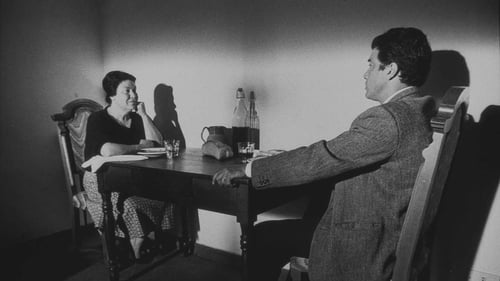
Editor
Depois de muitos anos longe, Silvestro volta do norte da Itália para o interior da Sicília, onde cresceu, para visitar sua mãe. Durante a viagem, ele conversa com estranhos em um porto, passageiros em um trem, sua mãe e um afiador de facas.

Producer
Depois de muitos anos longe, Silvestro volta do norte da Itália para o interior da Sicília, onde cresceu, para visitar sua mãe. Durante a viagem, ele conversa com estranhos em um porto, passageiros em um trem, sua mãe e um afiador de facas.

Adaptation
Depois de muitos anos longe, Silvestro volta do norte da Itália para o interior da Sicília, onde cresceu, para visitar sua mãe. Durante a viagem, ele conversa com estranhos em um porto, passageiros em um trem, sua mãe e um afiador de facas.

Director
Depois de muitos anos longe, Silvestro volta do norte da Itália para o interior da Sicília, onde cresceu, para visitar sua mãe. Durante a viagem, ele conversa com estranhos em um porto, passageiros em um trem, sua mãe e um afiador de facas.
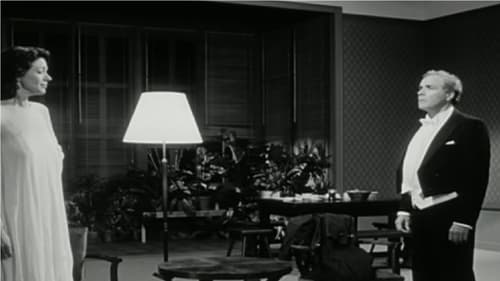
Director
Based on a rarely performed Schoenberg opera from 1929, From Today Until Tomorrow explores one night in a marriage. A husband and wife return from a party where she has flirted with another man while he has cast an appraising eye toward one of her acquaintances. Each dreams, briefly, of leaving the marriage for the excitement and mystery of a new lover.

Narrator (voice) (uncredited)
About the history of the French region of Lorraine, called Lothringen in German.

Editor
About the history of the French region of Lorraine, called Lothringen in German.

Producer
About the history of the French region of Lorraine, called Lothringen in German.

Writer
About the history of the French region of Lorraine, called Lothringen in German.

Director
About the history of the French region of Lorraine, called Lothringen in German.

Producer
Uma Antígona destemida, recusando-se a permitir que o corpo de seu irmão assassinado Polinices seja devorado por abutres e cães, desafia o tirano Creonte ao enterrá-lo. Como punição, Creonte ordena que a filha rebelde de Édipo seja sepultada viva, para que não semeie a insurreição entre o povo.

Writer
Uma Antígona destemida, recusando-se a permitir que o corpo de seu irmão assassinado Polinices seja devorado por abutres e cães, desafia o tirano Creonte ao enterrá-lo. Como punição, Creonte ordena que a filha rebelde de Édipo seja sepultada viva, para que não semeie a insurreição entre o povo.

Director
Uma Antígona destemida, recusando-se a permitir que o corpo de seu irmão assassinado Polinices seja devorado por abutres e cães, desafia o tirano Creonte ao enterrá-lo. Como punição, Creonte ordena que a filha rebelde de Édipo seja sepultada viva, para que não semeie a insurreição entre o povo.

Himself
Documentary about the shooting of Straub's Antigone.

Himself

Joachim Gasquet (voice) [uncredited]
A landmark work of symbolistic imagery. The words that the filmmakers speak offscreen are imaginary conversation with Cézanne quoted from a critique by Joachim Gasquet. An exchange of memories spanning over 250 years interweaves everything from the philosophy of Empedocles to excerpts from the film Madame Bovary, to extant paintings by Cézanne, to the buildings of the artists’ village at Mont Sainte-Victoire. —ntticc.or.jp

Director
A landmark work of symbolistic imagery. The words that the filmmakers speak offscreen are imaginary conversation with Cézanne quoted from a critique by Joachim Gasquet. An exchange of memories spanning over 250 years interweaves everything from the philosophy of Empedocles to excerpts from the film Madame Bovary, to extant paintings by Cézanne, to the buildings of the artists’ village at Mont Sainte-Victoire. —ntticc.or.jp

Editor
A companion piece to the earlier film ‘The Death of Empedocles’, 'Black Sin' is an adaptation of the third version of Friedrich Hölderlin’s play ‘Der Tod Des Empedokles’.

Producer
A companion piece to the earlier film ‘The Death of Empedocles’, 'Black Sin' is an adaptation of the third version of Friedrich Hölderlin’s play ‘Der Tod Des Empedokles’.

Adaptation
A companion piece to the earlier film ‘The Death of Empedocles’, 'Black Sin' is an adaptation of the third version of Friedrich Hölderlin’s play ‘Der Tod Des Empedokles’.

Director
A companion piece to the earlier film ‘The Death of Empedocles’, 'Black Sin' is an adaptation of the third version of Friedrich Hölderlin’s play ‘Der Tod Des Empedokles’.
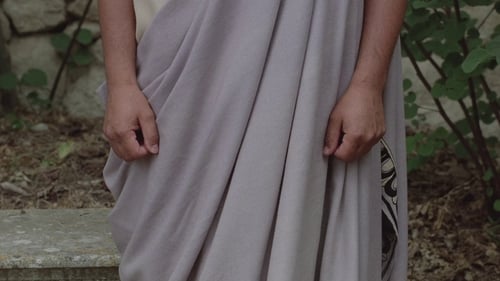
Editor
Film adaptation by Straub and Huillet of Hölderlin's 1798 tragedy on the symbolic death of Empedoclus, the legislator in Ancient Greece.

Adaptation
Film adaptation by Straub and Huillet of Hölderlin's 1798 tragedy on the symbolic death of Empedoclus, the legislator in Ancient Greece.

Director
Film adaptation by Straub and Huillet of Hölderlin's 1798 tragedy on the symbolic death of Empedoclus, the legislator in Ancient Greece.

Editor
"D. W. Griffith’s 1909 short film A Corner in Wheat, a Biblical tale of avarice, divine retribution, and the prolonged suffering of the masses, is the prelude to this political film essay. Straub-Huillet offer a dialectical montage of cause (capitalist greed) and effect (the poverty of the farmer and the urban underclass), and draw from excerpts of their earlier work: Moses und Aaron, Fortini/Cani, and From the Cloud to the Resistance." - MoMA

Director
"D. W. Griffith’s 1909 short film A Corner in Wheat, a Biblical tale of avarice, divine retribution, and the prolonged suffering of the masses, is the prelude to this political film essay. Straub-Huillet offer a dialectical montage of cause (capitalist greed) and effect (the poverty of the farmer and the urban underclass), and draw from excerpts of their earlier work: Moses und Aaron, Fortini/Cani, and From the Cloud to the Resistance." - MoMA

N°342
Reel 35 of Gérard Courant’s on-going Cinematon series.
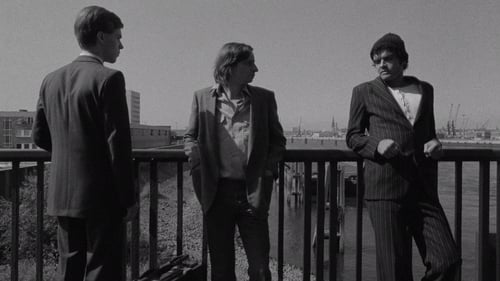
Editor
A young man, recently arrived in New York from Europe, becomes swept up in a series of events that are beyond his knowledge or control.

Adaptation
A young man, recently arrived in New York from Europe, becomes swept up in a series of events that are beyond his knowledge or control.

Director
A young man, recently arrived in New York from Europe, becomes swept up in a series of events that are beyond his knowledge or control.

Himself
Filmmaker Manfred Blank (director of the excellent Pharos of Chaos) interviews Danièle Huillet and Jean-Marie Straub at some length about their then-current production, Klassenverhältnisse (Class Relations), in which he, himself, performed as an actor.

This film is at once a self-portrait and an homage to Jean-Marie Straub, Farocki's role model and former teacher at the Film Academy.

Director
Forgotten Straub-Huillet film that shows outtakes from "Black Sin".
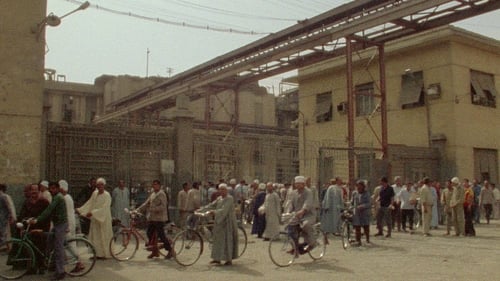
Producer
A partir da carta de Friedrich Engels a Karl Kautsky (20 de fevereiro de 1889); excerto de "die Bauernfrage in Frankreich und Deutschland" (A Questão Camponesa na França e na Alemanha, 1895); posfácio de "La lutte de classe en Egypte de 1945 à 1968" (1969), de Mamoud Hussein.

Writer
A partir da carta de Friedrich Engels a Karl Kautsky (20 de fevereiro de 1889); excerto de "die Bauernfrage in Frankreich und Deutschland" (A Questão Camponesa na França e na Alemanha, 1895); posfácio de "La lutte de classe en Egypte de 1945 à 1968" (1969), de Mamoud Hussein.

Editor
A partir da carta de Friedrich Engels a Karl Kautsky (20 de fevereiro de 1889); excerto de "die Bauernfrage in Frankreich und Deutschland" (A Questão Camponesa na França e na Alemanha, 1895); posfácio de "La lutte de classe en Egypte de 1945 à 1968" (1969), de Mamoud Hussein.

Director
A partir da carta de Friedrich Engels a Karl Kautsky (20 de fevereiro de 1889); excerto de "die Bauernfrage in Frankreich und Deutschland" (A Questão Camponesa na França e na Alemanha, 1895); posfácio de "La lutte de classe en Egypte de 1945 à 1968" (1969), de Mamoud Hussein.
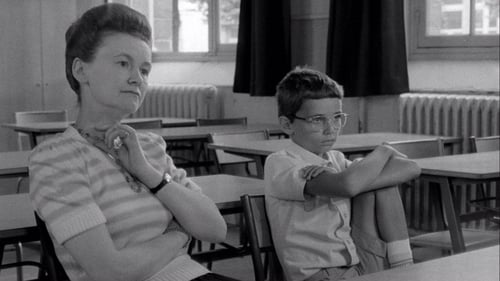
Producer
The child Ernesto doesn't want to go to school any more because, as he says, all he is taught there is things he doesn't know.

Director
The child Ernesto doesn't want to go to school any more because, as he says, all he is taught there is things he doesn't know.
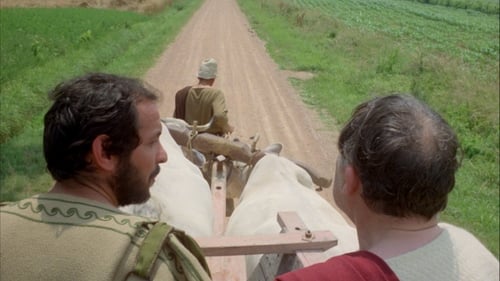
Adaptation
'Dalla nube alla resistenza (From the Cloud to the Resistance ) (1978), based on two works by Cesare Pavese, falls into the category of History Lessons and Too Early, Too Late as well. It, too, has two parts—a twentieth-century text and a text regarding the myths of antiquity, each set in the appropriate landscape. Pavese's The Moon and the Bonfires looks back on the violent deaths of Italian anti-Fascist resistance fighters; Dialogues with Leucò is a series of dialogues between heroes and gods, connecting myth and history and returning to an ambiguous stage in the creation of distinctions, such as that between animal and human, which are fundamental to grammar and language itself. Such a juxtaposition of political engagement with profoundly contemplative issues such as myth, nature, and meaning points to the characters of Empedocles and Antigone in the Hölderlin films.' (From "Landscapes of resistance. The German Films of Danièle Huillet and Jean-Marie Straub" by Barton Byg)

Editor
'Dalla nube alla resistenza (From the Cloud to the Resistance ) (1978), based on two works by Cesare Pavese, falls into the category of History Lessons and Too Early, Too Late as well. It, too, has two parts—a twentieth-century text and a text regarding the myths of antiquity, each set in the appropriate landscape. Pavese's The Moon and the Bonfires looks back on the violent deaths of Italian anti-Fascist resistance fighters; Dialogues with Leucò is a series of dialogues between heroes and gods, connecting myth and history and returning to an ambiguous stage in the creation of distinctions, such as that between animal and human, which are fundamental to grammar and language itself. Such a juxtaposition of political engagement with profoundly contemplative issues such as myth, nature, and meaning points to the characters of Empedocles and Antigone in the Hölderlin films.' (From "Landscapes of resistance. The German Films of Danièle Huillet and Jean-Marie Straub" by Barton Byg)

Director
'Dalla nube alla resistenza (From the Cloud to the Resistance ) (1978), based on two works by Cesare Pavese, falls into the category of History Lessons and Too Early, Too Late as well. It, too, has two parts—a twentieth-century text and a text regarding the myths of antiquity, each set in the appropriate landscape. Pavese's The Moon and the Bonfires looks back on the violent deaths of Italian anti-Fascist resistance fighters; Dialogues with Leucò is a series of dialogues between heroes and gods, connecting myth and history and returning to an ambiguous stage in the creation of distinctions, such as that between animal and human, which are fundamental to grammar and language itself. Such a juxtaposition of political engagement with profoundly contemplative issues such as myth, nature, and meaning points to the characters of Empedocles and Antigone in the Hölderlin films.' (From "Landscapes of resistance. The German Films of Danièle Huillet and Jean-Marie Straub" by Barton Byg)
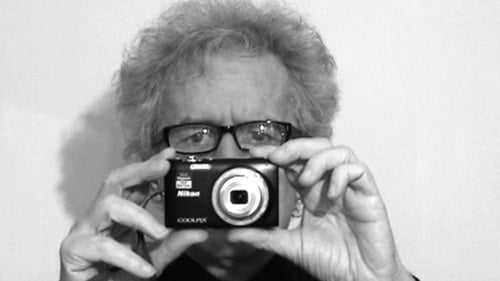
N°342
Cinématon is a 156-hour long experimental film by French director Gérard Courant. It was the longest film ever released until 2011. Composed over 36 years from 1978 until 2006, it consists of a series of over 2,821 silent vignettes (cinématons), each 3 minutes and 25 seconds long, of various celebrities, artists, journalists and friends of the director, each doing whatever they want for the allotted time. Subjects of the film include directors Barbet Schroeder, Nagisa Oshima, Volker Schlöndorff, Ken Loach, Benjamin Cuq, Youssef Chahine, Wim Wenders, Joseph Losey, Jean-Luc Godard, Samuel Fuller and Terry Gilliam, chess grandmaster Joël Lautier, and actors Roberto Benigni, Stéphane Audran, Julie Delpy and Lesley Chatterley. Gilliam is featured eating a 100-franc note, while Fuller smokes a cigar. Courant's favourite subject was a 7-month-old baby. The film was screened in its then-entirety in Avignon in November 2009 and was screened in Redondo Beach, CA on April 9, 2010.

Producer
The film is a sort of presentation of Franco Fortini's book 'I Cani del Sinai'. Fortini, an Italian Jew, reads excerpts from the book about his alienation from Judaism and from the social relations around him, the rise of Fascism in Italy, the anti-Arab attitude of European culture. The images, mostly a series of Italian landscape shots, provide a backdrop that highlights the meaning of the text. - Fabrizio Sabidussi

Editor
The film is a sort of presentation of Franco Fortini's book 'I Cani del Sinai'. Fortini, an Italian Jew, reads excerpts from the book about his alienation from Judaism and from the social relations around him, the rise of Fascism in Italy, the anti-Arab attitude of European culture. The images, mostly a series of Italian landscape shots, provide a backdrop that highlights the meaning of the text. - Fabrizio Sabidussi

Director
The film is a sort of presentation of Franco Fortini's book 'I Cani del Sinai'. Fortini, an Italian Jew, reads excerpts from the book about his alienation from Judaism and from the social relations around him, the rise of Fascism in Italy, the anti-Arab attitude of European culture. The images, mostly a series of Italian landscape shots, provide a backdrop that highlights the meaning of the text. - Fabrizio Sabidussi
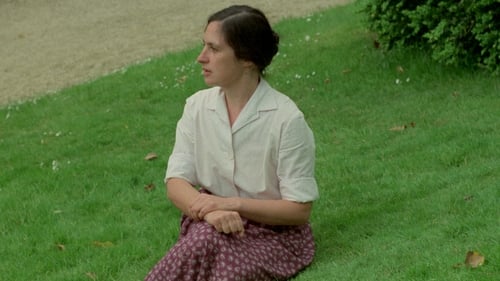
Editor
A tribute to Mallarmé that not only asserts the continuing relevance of his work but also confronts its literary ambiguities with political and cinematic ambiguities of its own. In outline, the film could not be more straightforward: it offers a recitation of one of Mallarmé’s most celebrated and complex poems (it was his last published work in his own lifetime, appearing in 1897, a year before his death) and proposes a cinematic equivalent for the author’s original experiment with typography and layout by assigning the words to nine different speakers, separating each speaker from the other as she or he speaks, and using slight pauses to correspond with white spaces on the original page.

Director
A tribute to Mallarmé that not only asserts the continuing relevance of his work but also confronts its literary ambiguities with political and cinematic ambiguities of its own. In outline, the film could not be more straightforward: it offers a recitation of one of Mallarmé’s most celebrated and complex poems (it was his last published work in his own lifetime, appearing in 1897, a year before his death) and proposes a cinematic equivalent for the author’s original experiment with typography and layout by assigning the words to nine different speakers, separating each speaker from the other as she or he speaks, and using slight pauses to correspond with white spaces on the original page.

Producer
A familiar Biblical tale transformed into a cinematic opera of seemingly endless possibility. In expressive, melodic tones, the fraternal pair debate God’s true message and intent for His creations, a conflict that leads their followers towards chaos and sin. Set almost entirely within a Roman amphitheater whose history lends every precise line-reading and gesture, every startling camera move and cut, a totalizing force.

Editor
A familiar Biblical tale transformed into a cinematic opera of seemingly endless possibility. In expressive, melodic tones, the fraternal pair debate God’s true message and intent for His creations, a conflict that leads their followers towards chaos and sin. Set almost entirely within a Roman amphitheater whose history lends every precise line-reading and gesture, every startling camera move and cut, a totalizing force.

Director
A familiar Biblical tale transformed into a cinematic opera of seemingly endless possibility. In expressive, melodic tones, the fraternal pair debate God’s true message and intent for His creations, a conflict that leads their followers towards chaos and sin. Set almost entirely within a Roman amphitheater whose history lends every precise line-reading and gesture, every startling camera move and cut, a totalizing force.

Editor
This is a small, intense film based on Schoenberg’s opus of the same name with the subtitle “danger, fear, catastrophe”. It deals with emerging fascism and the persecution of Jews, as well as with their historical continuities.

Producer
This is a small, intense film based on Schoenberg’s opus of the same name with the subtitle “danger, fear, catastrophe”. It deals with emerging fascism and the persecution of Jews, as well as with their historical continuities.

This is a small, intense film based on Schoenberg’s opus of the same name with the subtitle “danger, fear, catastrophe”. It deals with emerging fascism and the persecution of Jews, as well as with their historical continuities.

Director
This is a small, intense film based on Schoenberg’s opus of the same name with the subtitle “danger, fear, catastrophe”. It deals with emerging fascism and the persecution of Jews, as well as with their historical continuities.
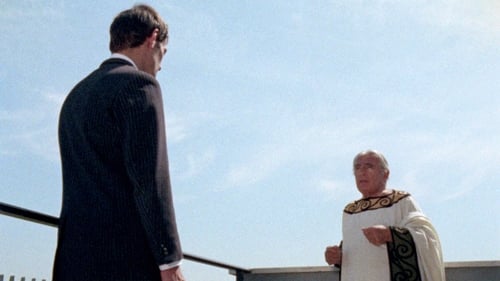
Editor
Set in contemporary Rome, the film shows through a series of encounters with “ancient” Romans, how the economic and political manipulation by ancient Roman society led to Caesar’s dictatorship. - British Film Institute

Director
Set in contemporary Rome, the film shows through a series of encounters with “ancient” Romans, how the economic and political manipulation by ancient Roman society led to Caesar’s dictatorship. - British Film Institute

A group of men, women and Kristl with his camera debate how to resist authority in all its forms. All cinematic professionalism is avoided as Kristl explores how to live and make films politically.

Editor
Straub-Huillet’s first color film, adapts a lesser-known Corneille tragedy from 1664, which in turn was based on an episode of imperial court intrigue chronicled in Tacitus’s Histories. The costuming is classical, and the toga-clad, nonprofessional cast performs the drama’s original French text amid the ruins of Rome’s Palatine Hill while the noise of contemporary urban life hums in the background. Their lines are executed with a terrific flatness and frequently through heavy accents; the language in Othon becomes not merely an expression but a thing itself, an element whose plainness here alerts us to qualities of the work that might otherwise be subordinated.

Lucus
Straub-Huillet’s first color film, adapts a lesser-known Corneille tragedy from 1664, which in turn was based on an episode of imperial court intrigue chronicled in Tacitus’s Histories. The costuming is classical, and the toga-clad, nonprofessional cast performs the drama’s original French text amid the ruins of Rome’s Palatine Hill while the noise of contemporary urban life hums in the background. Their lines are executed with a terrific flatness and frequently through heavy accents; the language in Othon becomes not merely an expression but a thing itself, an element whose plainness here alerts us to qualities of the work that might otherwise be subordinated.

Director
Straub-Huillet’s first color film, adapts a lesser-known Corneille tragedy from 1664, which in turn was based on an episode of imperial court intrigue chronicled in Tacitus’s Histories. The costuming is classical, and the toga-clad, nonprofessional cast performs the drama’s original French text amid the ruins of Rome’s Palatine Hill while the noise of contemporary urban life hums in the background. Their lines are executed with a terrific flatness and frequently through heavy accents; the language in Othon becomes not merely an expression but a thing itself, an element whose plainness here alerts us to qualities of the work that might otherwise be subordinated.

Producer

Writer
Three sequences are linked together in this short film by Straub; the first sequence is a long tracking shot from a car of prostitutes plying their trade on the night-time streets of Germany; the second is a staged play, cut down to 10 minutes by Straub and photographed in a single take; the final sequence covers the marriage of James and Lilith, and Lilith’s subsequent execution of her pimp, played by Rainer Werner Fassbinder. "The film is a look entirely at Western decadence" - Jean-Marie Straub.

Adaptation
Three sequences are linked together in this short film by Straub; the first sequence is a long tracking shot from a car of prostitutes plying their trade on the night-time streets of Germany; the second is a staged play, cut down to 10 minutes by Straub and photographed in a single take; the final sequence covers the marriage of James and Lilith, and Lilith’s subsequent execution of her pimp, played by Rainer Werner Fassbinder. "The film is a look entirely at Western decadence" - Jean-Marie Straub.

Director
Three sequences are linked together in this short film by Straub; the first sequence is a long tracking shot from a car of prostitutes plying their trade on the night-time streets of Germany; the second is a staged play, cut down to 10 minutes by Straub and photographed in a single take; the final sequence covers the marriage of James and Lilith, and Lilith’s subsequent execution of her pimp, played by Rainer Werner Fassbinder. "The film is a look entirely at Western decadence" - Jean-Marie Straub.
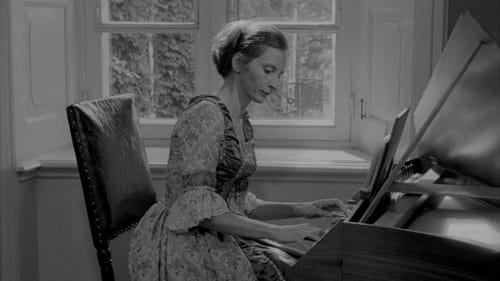
Producer
The life and music of Johann Sebastian Bach as presented by his wife, Anna.

Editor
The life and music of Johann Sebastian Bach as presented by his wife, Anna.

Writer
The life and music of Johann Sebastian Bach as presented by his wife, Anna.

Director
The life and music of Johann Sebastian Bach as presented by his wife, Anna.

A short TV documentary about the making of Straub-Huillet's 'Chronicle of Anna Magdalena Bach'

Cinematography
A story about the continuity and collapse of history, the power of suppression, and the terror of reconciliation; loyalty, treason and revenge. In a brave cinematic game, Heinrich Böll’s story Billiards at Half-Past Nine is split up into cracks, blocks, breaks and sudden turns, as the life story of a German family, covering numerous generations, is propelled forward.

Editor
A story about the continuity and collapse of history, the power of suppression, and the terror of reconciliation; loyalty, treason and revenge. In a brave cinematic game, Heinrich Böll’s story Billiards at Half-Past Nine is split up into cracks, blocks, breaks and sudden turns, as the life story of a German family, covering numerous generations, is propelled forward.

Screenplay
A story about the continuity and collapse of history, the power of suppression, and the terror of reconciliation; loyalty, treason and revenge. In a brave cinematic game, Heinrich Böll’s story Billiards at Half-Past Nine is split up into cracks, blocks, breaks and sudden turns, as the life story of a German family, covering numerous generations, is propelled forward.

Director
A story about the continuity and collapse of history, the power of suppression, and the terror of reconciliation; loyalty, treason and revenge. In a brave cinematic game, Heinrich Böll’s story Billiards at Half-Past Nine is split up into cracks, blocks, breaks and sudden turns, as the life story of a German family, covering numerous generations, is propelled forward.

Director
Nas palavras de seus diretores, “Machorka-Muff” é a história de uma violação (a violação de um país, ao qual reimpuseram um exército, no qual um antigo general nazista é convidado a tomar parte num imaginário rearmamento do governo alemão no pós-guerra, após a renúncia política do chanceler Konrad Adenauer.
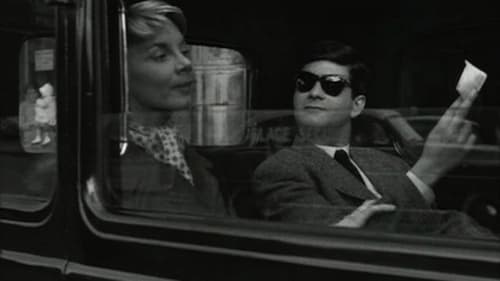
Assistant Director
Claire (Vitry) is a chic young Parisian woman married to a somewhat older husband, Jean (Doniol-Valcroze). As the story opens, she leaves her husband playing baroque music at the piano, telling him she is off to see her sister, Solange. In reality she meets her lover, Claude (Brialy) at his apartment; after some idle chatter and love-making he tells her a story of the shriveled heads that the Jivaro Indians used to give their lovers as tokens of affection but, as she shivers in disgust, he gives her a mink instead. How will they hide it from her husband though?

From Gérard Courant’s Cinématon series.
